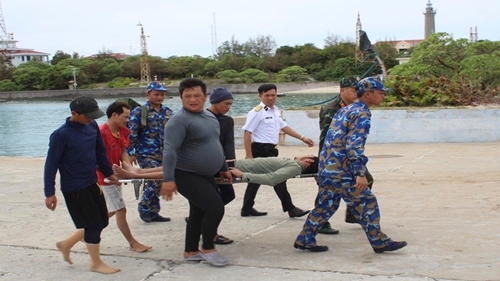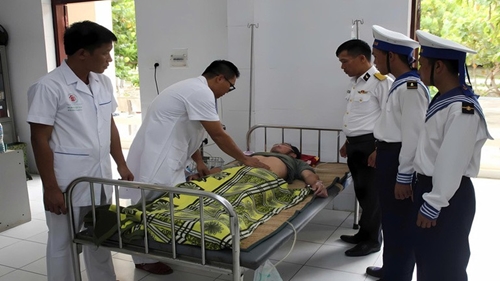The injured fisherman, Tran Van Do, was a crew-member of fishing vessel QNg 90969 TS. From about 8:30 a.m. to 10:00 a.m. the same day, he had been diving to catch fish at a depth of approximately 35 meters.
    |
 |
|
The fisherman being brought ashore for emergency treatment |
About 30 minutes after surfacing, Do began to experience symptoms including weakness in both legs, numbness in all limbs, reduced sensation from the chest down, and urinary retention.
Initial decompression treatment was administered on board the vessel, but his condition did not improve. He was urgently transferred to the infirmary on Song Tu Tay Island at 2:15 p.m.
Upon admission, the patient was conscious but dizzy, with muscle pain, weakness in all limbs, a soft abdomen, and no cranial nerve damage detected. A chest X-ray revealed no abnormalities.
Doctors diagnosed him with severe acute decompression sickness (Type 2), accompanied by dysfunction of the spinal cord at the T4–T5 level—a dangerous condition that can lead to paralysis or death if not treated promptly.
    |
 |
|
Military doctors of the infirmary on Song Tu Tay Island taking care of the fisherman |
The infirmary’s medical team immediately conducted an online consultation with the Naval Medical Institute and implemented decompression treatment, combined with other measures such as intravenous fluids, oxygen therapy, and so on.
Thanks to the urgent and highly professional coordination of the island’s military doctors, the patient is now receiving intensive treatment, and his condition has initially stabilized.
Translated by Song Anh